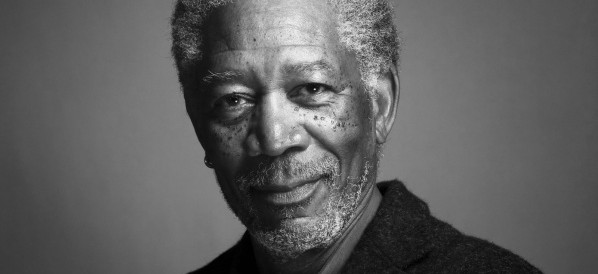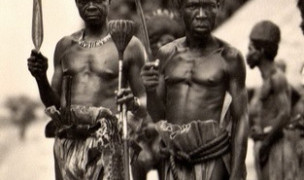 4 Terms
4 TermsHome > Terms > English (EN) > commercial and angling fishing
commercial and angling fishing
Commercial fishing in the United States, as worldwide, has been affected by environmental degradation. The main source of this degradation since the 1970s has been over-fishing by fleets of vessels competing in a very lucrative market. According to the National Marine Fisheries Service, American fishing vessels caught 9.5 billion pounds of fish and shellfish in 1991, worth about $3.3 billion. This was double the amount of fish caught in 1970. Generally American fishermen have caught Alaskan pollock, menhaden, salmon, crab and cod, with Alaska dominating the industry followed by the Texas/Gulf and Chesapeake regions. American consumers’ constant demand for shrimp, however, has led to a large fisheries trade deficit.
The reduced harvests that have resulted from the depletion of numerous fish species have only exacerbated the problem in the short term as increased prices for fish have made competition more intense. In the long term, livelihoods are threatened and whole fishing towns have been hit by widespread unemployment. In addition, the need both to reduce costs (sometimes in the area of safety procedures) and to locate harvests at a greater distance from the shore has made work—for those who are able to find it—more dangerous. In many instances, the vulnerability of old fishing populations has enabled new immigrants to establish their own fishing vessels, though the continued deterioration of the harvests makes this only a short-term replacement.
Attempts to control the amount harvested have had significant consequences in international relations and in relations among social groups within the United States. The Japanese have often resisted American attempts to limit the amount of their catches, leading to friction between the two nations. Within the United States, American Indian fishing rights have been established by treaties and so cannot be challenged or altered according to environmental exigencies. For example, whaling remains legal for American Indian tribes on the west coast, while for other fishermen there are strict prohibitions in place. However, the traditional whaling methods used by American Indians limit the number of whales that they can catch.
Meanwhile, angling is the second most popular recreation in the United States behind swimming. An estimated 50 million Americans participate in the sport, 69 percent of them men. The sport is controlled by the states, which set the rules and regulations and give licenses to anglers to fish. Thirty-four million such licenses were given in 1994. But, before assuming that widespread eradication of fishing populations is occurring in the streams and ponds of the United States, it should be remembered that it is estimated that 90 percent of the fish are caught by only 10 percent of the anglers. This suggests that most anglers have little clue about what they are doing, are quite possibly motivated by other things about the recreation besides the catch alone (a suntan and a snooze) and perhaps would not enjoy it much if they caught fish too frequently.
Environmental issues also affect fishing significantly. During much of the twentieth century rivers around the country were so polluted as a result of untreated industrial waste flowing into them that they were almost completely bereft of fish. With the intervention of the Environmental Protection Agency and the growing concern over the environment as a political issue, many states have taken initiatives to clean up rivers and other waterways. Many such bodies of water are now seeing the reappearance of fish populations that have not been seen for decades.
In addition to pollution, global warming and long hot summers in many parts of the US have altered the conditions for anglers. In many ponds, streams and rivers dead fish have been found in the middle of each summer floating on top of algae. Dry weather and heat contribute to the growth of such algae, which then consume the oxygen in the water and cause the fish to suffocate. Where this is not the case, the warm water leads fish like carp and striped bass to head for cooler, fast-moving streams that are more difficult for the angler to master, or for deeper spots in lakes and streams where they are beyond the reach of the anglers’ lures. In other words, the fish can adapt to the changing weather better than the anglers, who are increasingly left with little more than a cancerous sunburn on the embankment.
- Part of Speech: noun
- Synonym(s):
- Blossary:
- Industry/Domain: Culture
- Category: American culture
- Company: Routledge
- Product:
- Acronym-Abbreviation:
Other Languages:
Member comments
Terms in the News
Billy Morgan
Sports; Snowboarding
The British snowboarder Billy Morgan has landed the sport’s first ever 1800 quadruple cork. The rider, who represented Great Britain in the 2014 Winter Olympics in Sochi, was in Livigno, Italy, when he achieved the man-oeuvre. It involves flipping four times, while body also spins with five complete rotations on a sideways or downward-facing axis. The trick ...
Marzieh Afkham
Broadcasting & receiving; News
Marzieh Afkham, who is the country’s first foreign ministry spokeswoman, will head a mission in east Asia, the state news agency reported. It is not clear to which country she will be posted as her appointment has yet to be announced officially. Afkham will only be the second female ambassador Iran has had. Under the last shah’s rule, Mehrangiz Dolatshahi, a ...
Weekly Packet
Language; Online services; Slang; Internet
Weekly Packet or "Paquete Semanal" as it is known in Cuba is a term used by Cubans to describe the information that is gathered from the internet outside of Cuba and saved onto hard drives to be transported into Cuba itself. Weekly Packets are then sold to Cuban's without internet access, allowing them to obtain information just days - and sometimes hours - after it ...
Asian Infrastructure Investment Bank (AIIB)
Banking; Investment banking
The Asian Infrastructure Investment Bank (AIIB) is an international financial institution established to address the need in Asia for infrastructure development. According to the Asian Development Bank, Asia needs $800 billion each year for roads, ports, power plants or other infrastructure projects before 2020. Originally proposed by China in 2013, a signing ...
Spartan
Online services; Internet
Spartan is the codename given to the new Microsoft Windows 10 browser that will replace Microsoft Windows Internet Explorer. The new browser will be built from the ground up and disregard any code from the IE platform. It has a new rendering engine that is built to be compatible with how the web is written today. The name Spartan is named after the ...
Featured Terms
Morgan Freeman
With an authoritative voice and calm demeanor, this ever popular American actor has grown into one of the most respected figures in modern US cinema. ...
Contributor
Featured blossaries
farooq92
0
Terms
47
Blossaries
3
Followers
Top 5 TV series of 2014
 4 Terms
4 Terms
Browers Terms By Category
- General architecture(562)
- Bridges(147)
- Castles(114)
- Landscape design(94)
- Architecture contemporaine(73)
- Skyscrapers(32)
Architecture(1050) Terms
- Clock(712)
- Calendar(26)
Chronometry(738) Terms
- Fuel cell(402)
- Capacitors(290)
- Motors(278)
- Generators(192)
- Circuit breakers(147)
- Power supplies(77)
Electrical equipment(1403) Terms
- Capacitors(290)
- Resistors(152)
- Switches(102)
- LCD Panels(47)
- Power sources(7)
- Connectors(7)




